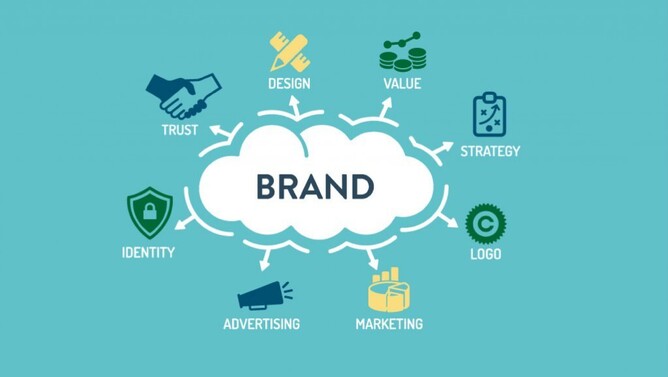In B2B marketing a poor brand is confusing to those who make purchasing decisions. Businesses place a higher value than consumers do on the reputation of their supplier so a single, well recognised brand, can be important to winning a sale and turning that into repeat sales.
In the B2B context it’s much more effective to create a single powerful brand for the business that can be carried above the products it sells.
Research shows branding’s importance
A study conducted by Accenture on the B2B sector found that B2B companies are neglecting one of the basic facts of marketing – the brand’s importance to the customer.
In fact the study showed that the brand is highly important in the customer's mind, just as important as it is in business-to-consumer selling. It found that a well known brand with reputable connotations is the single most important B2B buyer preference, even scoring higher than service, price and variety.
Branding needs double sided appeal
Whether the target is a business owner or a buyer for a large organisation, the brand must appeal to both their personal and their business selves to have an impact on the selling process.
Here are just some of the considerations B2B branding has to incorporate:
1. Unlike consumer brand marketing, the targeting of B2B brand promotions is based on a person’s employment instead of their lifestyle or family needs.
2. The purchase will be made for a business and not an individual.
3. The personal characteristics of the people classified as ‘targets’ can vary widely as the only thing they have in common is that they are making a purchase for a business.
4. Their decisions will often be based on factors of which the seller is unaware, such as the need to stay within a set budget.
5. The emotional content of the buyer’s decision making process is likely to be overshadowed by practical considerations.
6. The purchase will often be related to projects or business activities of which the marketer will have little or no direct knowledge.
To successfully brand a B2B company the chosen positioning has to compete against other companies targeting the same market. It must be at least as impressive and promise at least the same level of customer satisfaction to be competitive.
Perhaps the most difficult part of B2B branding is to find a point of differentiation that will make one company’s brand stand out clearly from all its competitors. The brand dimensions have to respond to the target group’s perceptions of what they want, and that includes such areas as wanting to be recognised for their purchasing abilities and a desire to demonstrate their efficiency to their employer.
The golden rules of B2B branding
There are a few ‘golden rules’ of B2B branding that can help guide the process for any business:
· Focus on building a single, powerful brand
· Base the brand on a point of difference unrelated to any competitor
· Support the brand by outperforming competitors in areas of quality and service
· Ensure that your brand makes a promise to your target audience about something that is critical to their own success
B2B branding requires an investment of capital and time that many businesses aren’t willing to make. They become known by their products but not for themselves. In the longer term this costs them share-of-mind among their target group and can even affect such things as their ability to attract the best human talent in a competitive market.

